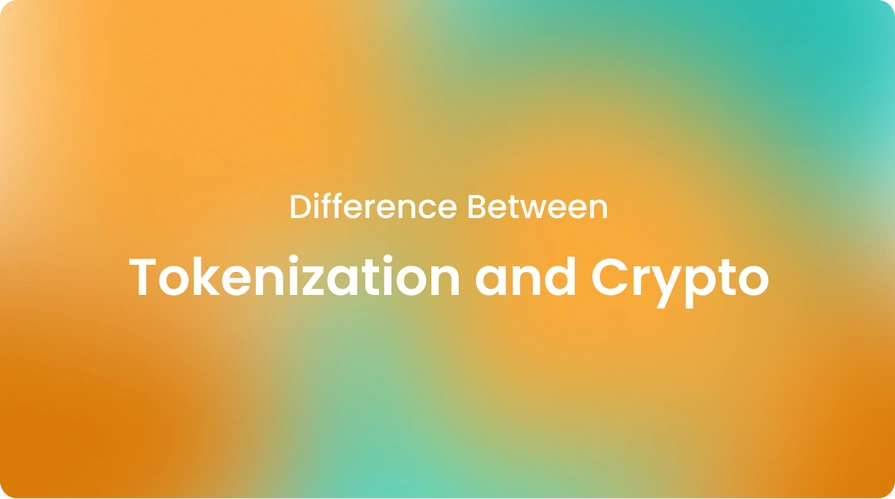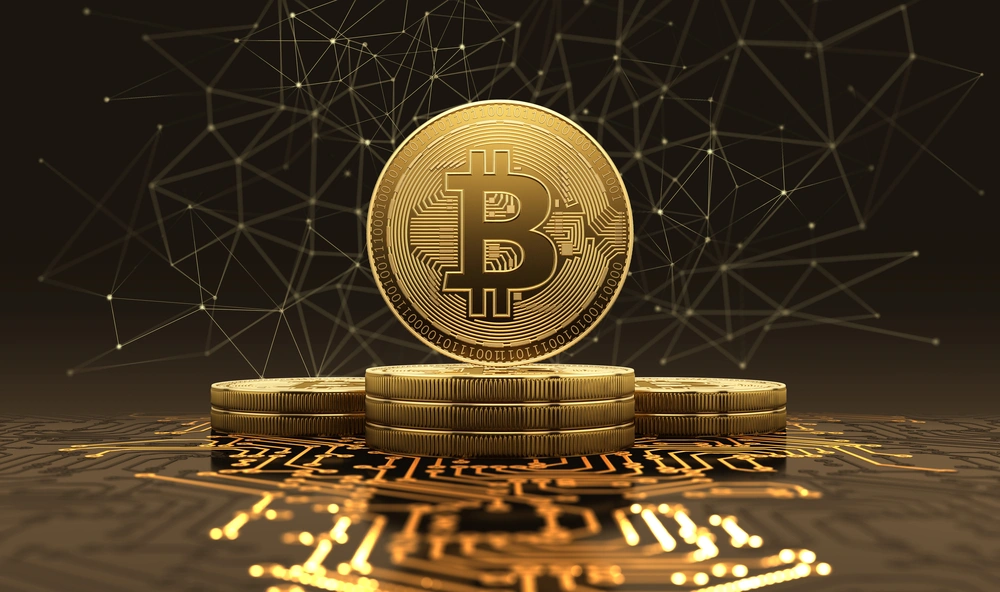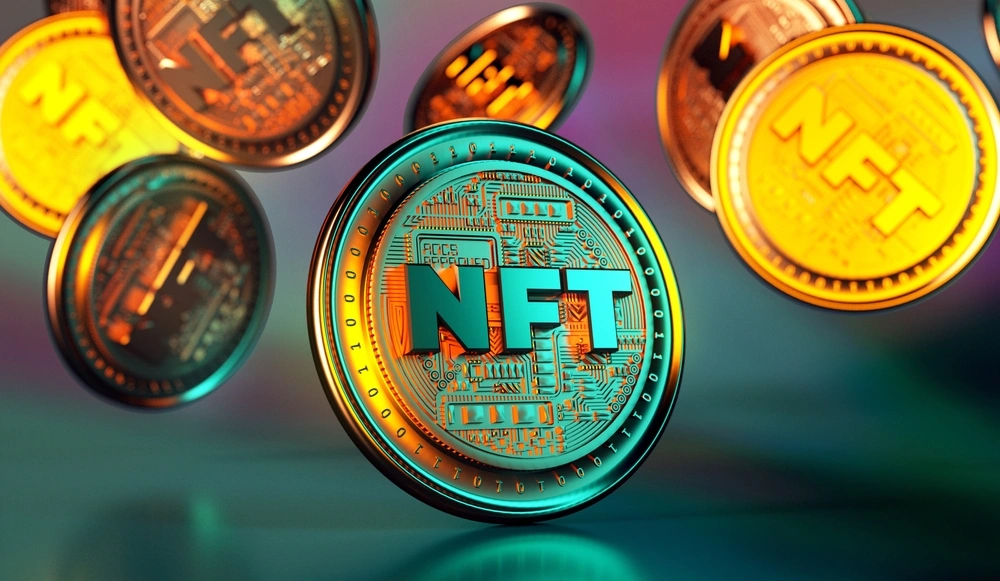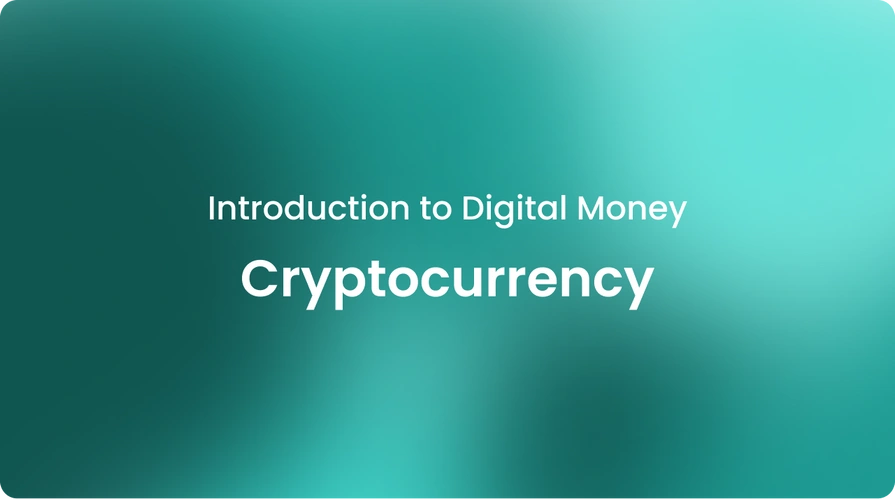|crypto, knowledgehub
What Is the Difference Between Tokenization and Crypto?

The world of blockchain technology is expanding at a rapid pace, and you may wonder the difference between tokenization and crypto, which are two important aspects of this innovative technology.
What started as Bitcoin, the first cryptocurrency, over a decade ago has exploded into an entire financial ecosystem all its own. With the new possibilities of blockchain, one notable development is the rise of crypto tokens.
But what exactly are tokens, and how do they differ from cryptocurrencies? Let's take a closer look! While cryptocurrencies like Bitcoin introduce completely new digital currencies, tokenization refers to digital assets that represent real-world value with crypto tokens.
Existing blockchain networks, like Ethereum, build tokens that enable fractional ownership of assets. Rather than being independent cryptocurrencies, crypto tokens derive their value from the assets they represent.
Crypto coins are standalone networks, whereas tokens rely on collaboration with a supporting platform. Cryptocurrencies introduce new currencies, while tokens represent ownership in traditional assets now made digital.
What is a crypto coin?
Crypto coins are fully-fledged digital currencies that operate on their own blockchain networks independently of traditional currency systems. As such, they serve as means of crypto exchange, units of account, and stores of value without any ties to external assets.
Some key features of crypto coins include:
- They are decentralized digital currencies not issued by any central authority.
- Examples include Bitcoin, Ethereum, and more based on their own blockchains.
- Users can send them globally peer-to-peer through blockchain networks.
- Transactions are anonymous, transparent, and recorded on public ledgers.
- Programmatic control, rather than supply regulation, characterizes the operations of a central bank.
- Market demand sets the price, independent of any link to another asset.
- Often supported by communities of miners verifying transactions.
Crypto coins establish sovereign digital currencies on decentralized networks independent of traditional monetary systems.
What are crypto tokens?
Crypto tokens are digital assets issued on blockchain networks that represent real-world value, activities, or services off-chain. As such, tokens and tokenization are often associated with organizations using blockchain technology to issue shares, manage assets, or provide access to services.
Some key types and examples of crypto tokens include:
- Security tokens represent shares in companies or investment vehicles like real estate.
- Within an ecosystem, utility tokens serve as units of exchange for accessing services or conferring usage rights.
- Stablecoins peg traditional fiat currencies to minimize volatility.
- Non-fungible tokens (NFTs) represent unique collectibles, digital art, or in-game assets.
- Holders of governance tokens have voting power over a blockchain project's decisions.
So while cryptocurrencies operate independently, tokens track and transact real-world value using the attributes of decentralized ledger systems. This allows innovative new models to leverage blockchain attributes.
What is tokenization in cryptocurrency?
Tokenization enables breaking down any real-world asset into digital shares on the blockchain. This process of creating crypto tokens to represent assets allows for several exciting decentralized applications in crypto.
For example, non-fungible tokens (NFTs) represent unique digital items like art or collectibles, while utility tokens provide access to services launched through initial coin offerings (ICOs). Stablecoins attempt to maintain stable values by pegging their price to traditional currencies or commodities.
There is also real estate tokenization, security tokens, cryptocurrency tokenization, and more as part of asset tokenization. Each offers different tokenized payment solutions for individuals and businesses.
By creating crypto tokens, traditional assets can benefit from features inherent to blockchain, like programmability, transparency, and efficiency. Fractionalizing assets through tokens lowers the barrier to investment by allowing ownership in smaller increments.
This increased liquidity is driving growth, with the tokenization market projected to reach $10 trillion by 2030. So in crypto, tokens make virtually any asset easily tradable and accessible to new investors globally.
What are the benefits of tokenization in crypto?
Tokenization creates new opportunities to leverage the power of blockchain technology. Some key benefits it provides include:
- Increased access to previously illiquid assets by fractionalizing ownership
- Global liquidity by allowing cross-border payments and trading of tokenized assets
- Transparency with transactions publicly recorded on distributed ledgers
- Programmability to automate processes or embed smart functions
- There is potential for new financing models, as tokens can now serve as collateral
- Lower transaction costs compared to legacy asset classes
- The possibility of blended hybrid models combining currencies and assets
When combined with the speed, security, and around-the-clock nature of crypto networks, tokenization creates compelling new asset classes. It also brings innovative new financial primitives and business models as the capabilities of blockchain technology continue to advance.
Is a token a cryptocurrency?
While crypto and tokens both exist natively as digital assets, they differ in certain key ways. Cryptocurrencies introduce entirely new decentralized digital currencies and associated crypto payment networks. Their values fluctuate independently based on market demand.
Existing blockchains are used to build tokens instead of creating their own networks. Tokens tie their values to the assets, services, or cash flows they represent.
From a technical standpoint, all cryptocurrencies can be considered tokens, but not all tokens function as independent currencies like crypto coins do. Practically, it is best to understand the terms as distinct.
Differences between a crypto coin and a token
The main distinction between a crypto coin and a token is that crypto coins operate as independent digital currencies not linked to any external asset. Market supply and demand solely determine their value.
Crypto tokens, on the other hand, represent assets, activities, or services outside of the blockchain. Market forces and the value of their reference asset determine their value.
To sum up the comparison:
- Crypto coins act as sovereign peer-to-peer digital money.
- Tokens track and represent real-world value on the blockchain.
- Coins are wholly decentralized digital assets.
- Tokens derive value from an off-chain reference asset or activity.
- Examples of coins include Bitcoin and Ethereum.
- Examples of tokens include those representing shares, commodities, and in-game items.
- Coins act as standalone digital currencies; tokens represent off-chain assets and activities.
- Coins have value from market action alone; their value depends partly on a reference.
- Coins record transactions only on their blockchain, while tokens utilize various blockchains like Bitcoin and Ethereum.
- Coins serve as money; tokens have various uses like shares, assets, services, or currencies.
While cryptocurrencies behave as decentralized digital money, tokens leverage blockchain attributes to expand how we track and transact real-world value.
Similarities between cryptocurrencies and crypto tokens
Despite distinctions in purpose, cryptocurrencies and crypto tokens do share some fundamental similarities:
- Both are digital assets issued on blockchain networks, with transaction records immutably recorded.
- Market trading, rather than any central authority, determines the values of both types of assets to some degree.
- Regardless of borders between jurisdictions, coins and tokens can be traded, exchanged, and hold value.
- Transactions of both coins and tokens are pseudonymous, with ownership tracked via distributed ledgers.
- Both introduce programmable scarcity and new transaction modes leveraging smart contracts.
- Innovations in blockchain technology continue to blur the lines between the two with hybrid models.
Decentralized finance is being transformed by cryptocurrencies and crypto tokens, even though their functions may differ, as they change how value is digitally represented and exchanged.
The bottom line
The rising phenomenon of tokenization exemplifies how cryptocurrency is evolving beyond stand-alone digital currencies into a new infrastructure for digitally representing all types of value.
Tokenization uses the openness, programmability, and worldwide accessibility of distributed ledgers to improve legacy assets with financing benefits. Investing in tokenization also makes it easier to create new crypto-native instruments.
With projects securing mainstream exposure, tokenization is establishing itself as a core component of how cryptocurrency expands opportunities in financial services worldwide.
If you want to benefit from expert cryptocurrency and tokenization solutions, you are in the right place. Cryptobunq is a one-stop-shop crypto service provider that offers diverse solutions, from batch payments to exchange APIs. You can leverage your individual and business projects with CBQ.
Explore our case studies and contact us today for secure crypto services. Adapt your business into the future with the benefits of cryptocurrency and tokenization through Cryptobunq!













